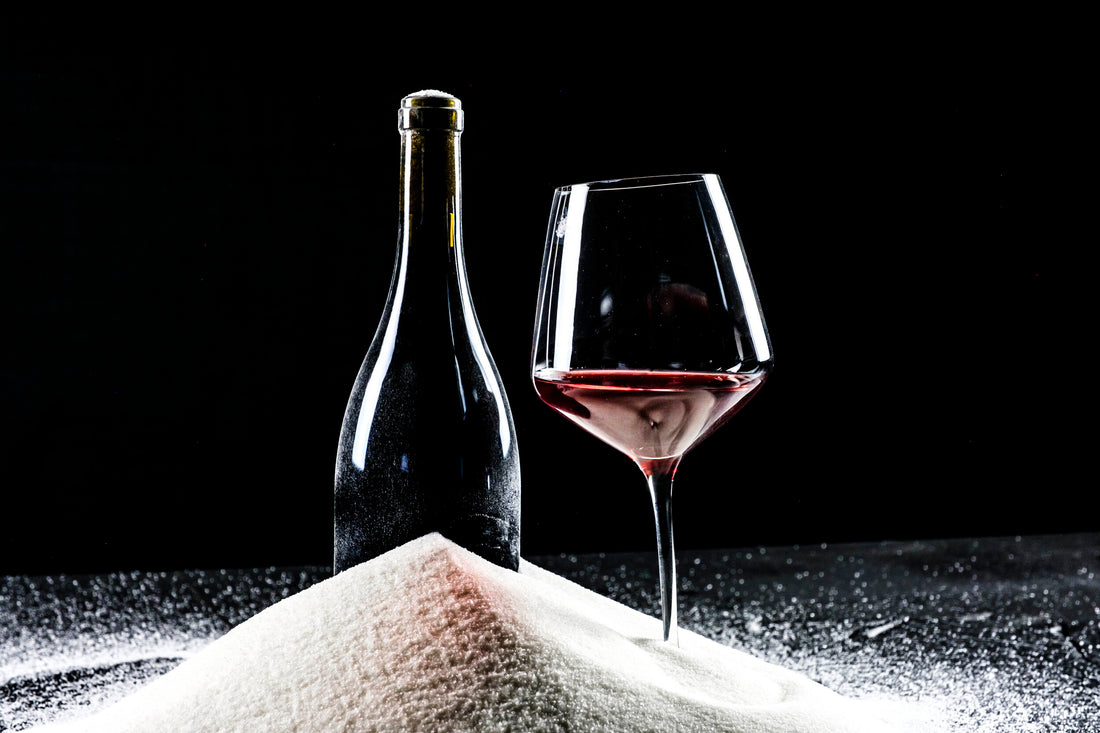A Look at Sugar in Wine
By Spencer Brooks
Toward the end of the summer, you’ll find winegrowers bent down amongst their vines, bags in hand, plucking a selection of grapes. When they’ve collected a couple handfuls, they bring them back to the cellar, crush them, and perform a special series of tests on the juice.
The growers are looking for several things—acidity, flavor development, and other characteristics—but there’s one aspect of grapes that’s more important than all others: sugar content.
Sugar is an essential part of wine. Without it, making wine would be impossible. It’s sugar that feeds yeasts and transforms into alcohol— turning simple grape juice into something greater.
Every single wine starts with sugar. But by the time it’s ready to bottle, a wine can be anywhere from completely dry, without any measurable sugar, to syrupy sweet. That decision rests with the winemaker.

What Makes Dry vs Sweet Wine?
A wine’s sugar content depends on several things. The first is fermentation. Complete fermentation, which is common in many Natural Wines, means leaving the yeasts to convert all available sugar into alcohol. The result is a sugar-free wine.
However, some winemakers choose to stop fermentation early, often by adding sulfites that kill the yeasts. A Natural option is to cool the wine to near-freezing temperatures, which puts the yeasts to sleep and precipitates them out of the wine. They fall to the bottom of the tank and can then be separated from the wine, halting fermentation.
Cutting fermentation short leaves some measure of sweetness in wine. That may be desirable for certain wine styles. Riesling and Lambrusco, for example, are both very acidic, and they’re generally more balanced when they have some sweetness to counter the acidity (Natural Wines also do this, by the way, although the amount of sugar is usually very low).
Finally, a winemaker may add sugar to finished wine. The practice is banned in a lot of winemaking zones, and winemakers who do it typically have to put “fortified wine” on their labels. Examples include ports and madeira wines.
There is a notable exception to this rule, though: in sparkling wine zones, most notably the Champagne region of France, winemakers can add a small amount of sugar to wine as they bottle it. Once it's corked, the yeasts ferment the sugar while in the bottle, creating the bubbles that define champagne and other sparkling wines.
However, there are also natural ways to make sparkling wine that don’t include added sugar, and depending on how the winemaker handles in-bottle fermentation, sparkling wine can still be dry by the time it’s ready to drink.

Dry Farm Wines Approach to Sugar
It would be bold to say that every wine should be sugar-free. Certain styles of wine would be borderline undrinkable without some sweetness to provide balance, and sweet wines can be a pleasure to drink when they’re made well.
Sweetness often overwhelms more subtle tasting notes, robbing wines of clarity and preventing them from expressing themselves fully.
That’s why, time after time, we come back to dry Natural Wines. They’re precise, complex, and a pleasure to drink, any day of the week.
The Dry Farm Wines Promise
Dry Farm Wines lab tests all our wines to ensure that they’re statistically sugar-free (less than a gram of sugar per whole bottle). The growers we work with ferment their wines fully, and the result is vibrant Natural Wine with clarity of flavor and no sugar.
It would be bold to say that every wine should be sugar-free. Certain styles of wine would be borderline undrinkable without some sweetness to provide balance, and sweet wines can be a pleasure to drink when they’re made well.
Sweetness often overwhelms more subtle tasting notes, robbing wines of clarity and preventing them from expressing themselves fully.
That’s why, time after time, we come back to dry Natural Wines. They’re precise, complex, and a pleasure to drink, any day of the week.

